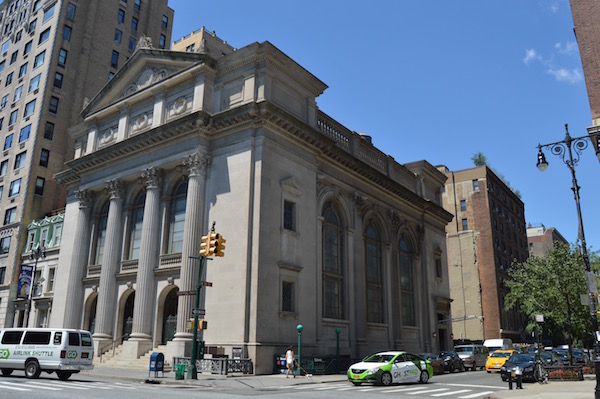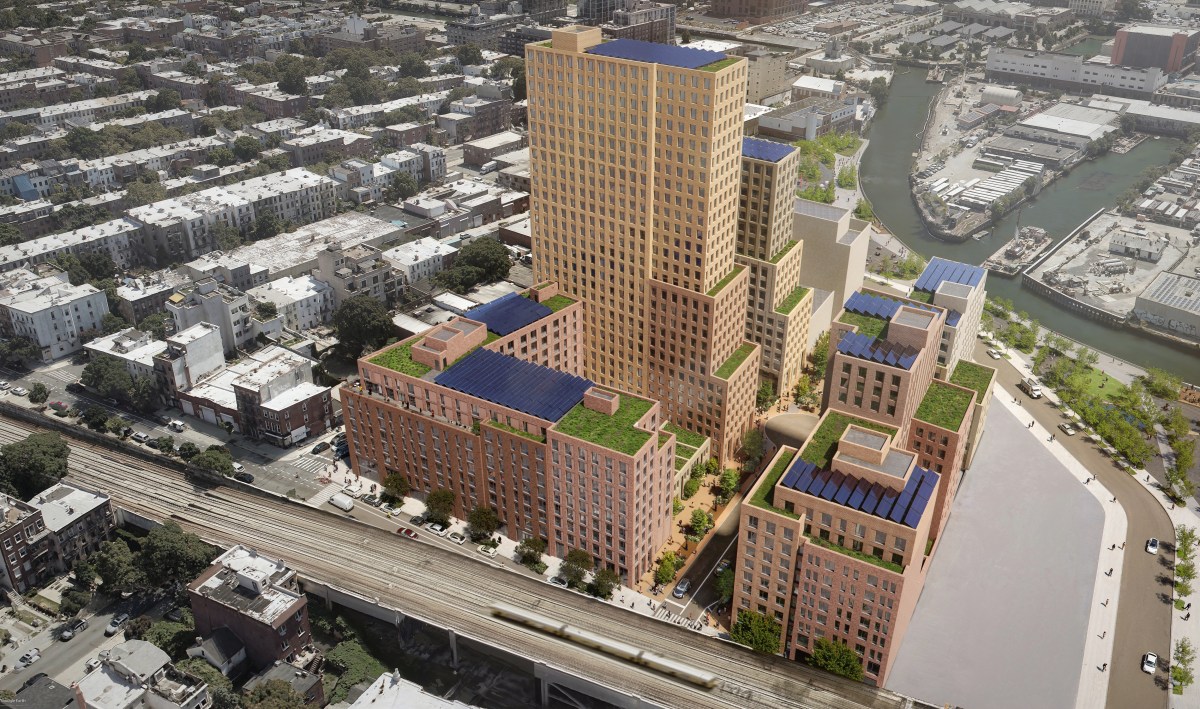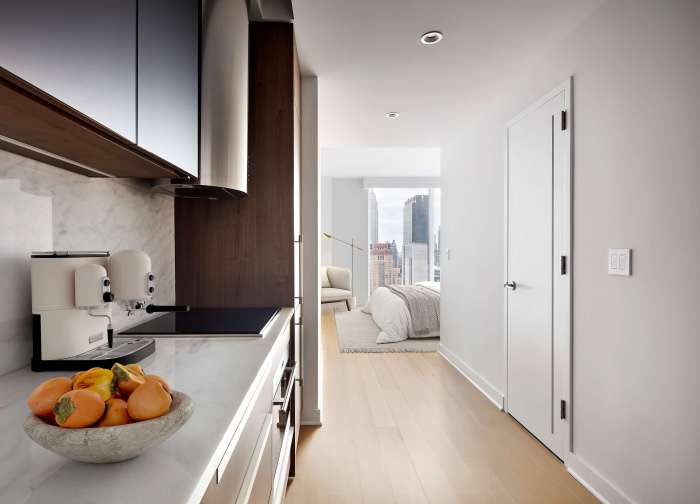
BY JACKSON CHEN | Eight years after its first appearance before the city’s Board of Standards and Appeals, an Upper West Side synagogue has once again gone in front of the agency to press for approval of a nine-story mixed-used development on property it owns adjacent to its place of worship.
Congregation Shearith Israel at 8 West 70th Street was first before the BSA back in 2008 when it received approval for its initial plans for a building that would house five residential floors, three office and classroom floors, and the ground floor lobby. Following zoning challenges and a stop-work order, the synagogue eventually had to reboot its plans by adding “minor amendments” in its application to the BSA filed in June.
After a contentious review at Community Board 7, opponents of the project have persisted in their objections as Shearith Israel went before the BSA on October 14.
Critics, including State Assemblymember Richard Gottfried, told the BSA about their concerns that the modified application was deceptive in characterizing the revisions as “minor changes” and would set a bad precedent for future development in the area.
“This block of West 70th Street is home to several architecturally distinctive low-rise brownstones that would be dwarfed by the height of the new building,” Gottfried said. “It would also accelerate the dangerous trend of developers and property owners pushing high-priced luxury development to the detriment of the spirit and the letter of the city’s zoning and historic preservation laws by setting a new height standard through a variance.”
According to the synagogue’s leadership, the new space was needed for an expanding congregation and greater student enrollment in its programs throughout the week. Seth Haberman, a trustee of CSI, said “the small synagogue” is often used up to three times a day for services and programming. Its seating, he explained, is very limited and oftentimes the staff must either add rows of chairs to accommodate members or limit attendance.
One of the project’s leading opponents, Landmark West!, charged that the re-filing of plans with the BSA was CSI’s attempt to bypass what should be a lengthy review process by city agencies after significant revisions and the passage of eight years since the project was first vetted.
“Congregation Shearith Israel is asking… to shortcut all of [the] usual procedures, to ignore all the obvious gaps in the record, and approve plans for a building that is substantially different from the one approved eight years ago,” Kate Wood, Landmark West!’s president, said.
Attorneys representing the opposition groups all agreed that the changes made to the application warrant a fresh start.
“This application shouldn’t be here today,” David Rosenberg, the attorney for Landmark West!, said. “There is such a major change in the building and there’s no basis for the extension. What should happen here is what happens to most applications, it should go to the Department of Buildings.”
Rosenberg added that only after being denied by the DOB should the plans then come for review by the BSA, which has authority to grant a variance modifying requirements enforced by the DOB. Critiquing CSI’s application, the Landmark West! attorney argued to the BSA that the synagogue was pursuing an approval process flawed by what he characterized as substantive discrepancies between the old and new plans.
The BSA would typically take the views of the local community board into account in reviewing an application for a variance, but CB7 is still working on a final determination on the merits of the CSI project. In September, the board withheld its approval after a 40-point letter from the BSA to the synagogue raising questions about the application was provided to CB7 by Landmark West!. The preservation group obtained the letter through the state’s Freedom of Information Law. CSI responded to the queries on September 8, but CB7 felt there wasn’t enough time to thoroughly review and discuss the many issued raised by the letter and so put off a decision.
CB7 member Mark Diller appeared before the BSA asking the agency to defer its determinations while the community board’s Land Use Committee and full board concluded its deliberations. Diller said a full board resolution on the project’s merits should be adopted at its November 1 meeting.
The synagogue’s leadership told the BSA that the new development was critical in the congregation remaining sustainable in the face of a growing membership.
“This facility will allow us to protect our past and defend our future,” Rabbi Meir Soloveichik, said. “We’ve been part of the neighborhood from its very beginning, we’ve contributed to the neighborhood since then, and we look forward to continuing to contribute to the neighborhood for many years to come.”
The BSA directed the synagogue to provide, by December 7, additional information on the proposed building’s setbacks, to clarify the specific changes between plans originally approved and those now proposed, and to detail the programmatic purposes of the classrooms to be built. The synagogue will have its next hearing before the BSA on January 10.

















